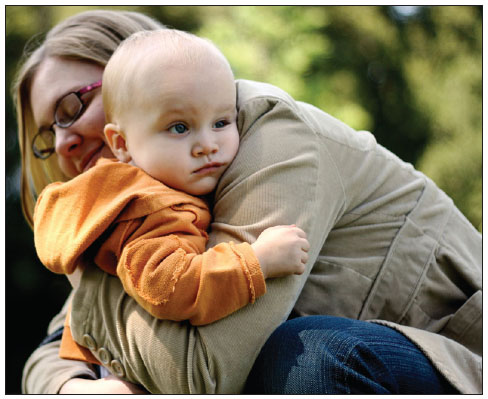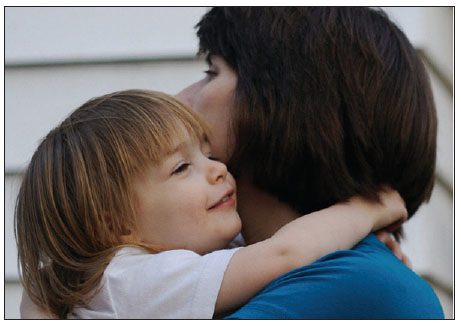Why should governments deny parents choice in care-giving
by Beverley SmithCanadian women's and children's rights activist Beverley Smith has long campaigned for economic justice for families, and has called upon governments to remove financial barriers that discourage families from giving care at home.
In 1995 United Nations member-states agreed to estimate the value of unpaid work. The agreement was non-binding. Those of us who supported recognising unpaid work in the home were fighting two battles – to get the care role noticed and to get it noticed wherever it happens.
We were confronting traditional economics that devalued women and counted only paid work. No wonder this was hard. Some contributors to an international webinar on caregiving last year offered some proposals for redefining gross domestic product (GDP). I felt, however, that the discussion mostly missed the mark. Still, I guess we should be grateful for any attention paid to caregiving at all.
 1. Women's rights
1. Women's rights
First-wave feminists got the vote. Secondwave feminists got women any career and pay equity; but they discouraged being "just a housewife". The loudest voices against women were from other women. Third-wave feminists aimed at a win-win outcome, that is, respect for paid and unpaid care roles equally. Governments, however, are stuck in the second wave.
2. Wrong terminology
In traditional economics, the terms "work", "labour force" and "productivity" refer only to paid work.
Although we speak of "housework", a person working in the home is dubbed inactive. "Staying home" is code for laziness. A "working mother" implies there are non-working mothers.
"Childcare" officially is not care of a child, but specifically paid care. Governments brag about funding "childcare" without clarifying that this money goes only to daycare centres. Traditional economics is blind to unpaid roles in the home.
New Zealand economist Marilyn Waring famously declared in her book, If Women Counted: A New Feminist Economics (1988): "Every time I see a mother with an infant, I know I am seeing a woman at work."
3. Care as privilege
When women still wanted to be home with the baby, economists assumed that this sort of care was leisure for indolent women. The Canadian government said it would not encourage women to be "wealthy bankers' wives", even though the Canadian Council on Social Development said most families with a parent at home were living near the poverty level.
The myth that women at home are rich has led to higher taxes on single-income two-parent households. Costs of childcare are only claimable if cash is paid to a third party. Income loss when a parent leaves paid employment in order to raise children may halve household income, but cannot be claimed as a "cost". The state has an odd view of who is rich.
4. Care as burden
When parents pointed out that home-based care was not leisure, but involved sleepless nights and intense days, traditional economics flipped its view. Now care of children was seen as a burden! The answer was for men to share the workload and for women to escape this obstacle in order to do useful, i.e., paid, work. These moves did not value caregiving.
5. National accounts
Having governments provide childcare has been costly. Sweden's tax rate soared. Many countries enlarged daycare group sizes, but costs kept rising since staff only stayed if they were paid good salaries.
Institutionalised childcare was affordable to parents only if the state paid the bill. Now taxpayers were required to subsidise this one-care style.
Before, government used to take care for granted and got it free. The gross domestic product (GDP) had no column for money not spent, and unpaid labour in the home used to save government billions.
GDP counted any job as good for the economy. Even forest fires contributed to growth statistics since they generated firefighter jobs. Nudging mothers to leave toddlers for paid jobs, and then to hire caregivers, created two jobs.
Nobody asked what the parent wanted, though; and nobody asked the child.
 Statistics Canada admitted that unpaid labour, if counted,
would be worth one third of the GDP, So I was pleased, at
last year's webinar on care-giving, to learn of new versions
of measuring work and economic output; but few nations are
listening.
Statistics Canada admitted that unpaid labour, if counted,
would be worth one third of the GDP, So I was pleased, at
last year's webinar on care-giving, to learn of new versions
of measuring work and economic output; but few nations are
listening.
6. Time-use surveys
Another way to recognise the value of unpaid care is through time-use surveys. These are useful, but incomplete. Is a labourer with a baby on her back doing work or childcare? Are cooking and shopping for diapers to be classified as work or childcare?
Mothers in paid employment resent not being called "fulltime mothers". Parents see most of what they do as contributing to care of the kids.
In a subway tunnel were two posters of a smiling baby. On one was the word "work", and on the second the word "play". They were both right.
The Canadian government scrapped the long-form census that asked for tallies of time-use as an invasion of privacy, and the new General Household Survey omits them. This has highlighted another dilemma: Is care a personal decision or societal?
The daycare lobby claimed that care was in the national interest – that $2 spent there would save $7 in lower unemployment, health care and criminal justice costs. But any good care – even care at home – already saves that money.
7. Other issues
Concerns about global warming abound. Compelling though these are, they are not relevant to the debate on caregiving. When environmentalists urge people not to have babies, or when teenagers think the world is ending, that does not address the needs of kids right now. Nor does it help future kids to get good care.
Children's problems differ globally. Some nations have high birth rates, while others have a birth rate so low that the tax base is eroding. Some nations pressure women to be home; others pressure them to be leave home. Some nations confront childtrafficking, child labour and child soldiers. Others focus more on Internet bullying, teen-gang affiliation and drug-dealers.
The West's answer is not necessarily the ideal yet. Finetuning for good care will still require parental oversight.
8. Guaranteed income, pensions and saving
A recent proposed scheme to replace myriad welfare payments with a single guaranteed basic income could keep people from poverty, homelessness and starvation, and remove stigma. But since it would go to single healthy adults, and not just mothers at home, critics have said it would encourage sloth. It was too broad a brush.
The idea of a homemaker pension is tricky. In Canada it has been called the "dropout provision" – not money, but forgiveness for some caregiving years. A U.S. talk show host suggested care roles be pensioned like military service to the nation. I liked that.
The suggestion for parents to save till they could afford kids is also flawed. It costs $180,000 to raise a child to age 18. By the time couples have saved enough, the biological clock may have stopped.
There have been other proposals. In Canada, early-years centres offer play areas so that parents at home can drop in to get advice – not money, just advice.
This highlights another obstacle: can parents be trusted? One government official has said that money given to parents would be spent on "beer and popcorn".
And a common bias of traditional economics is that if you can't inspect it, you can't trust it. Though people are trusted how to spend their salaries, governments have hesitated to trust parents with caregiving money.
The claim that parents at home are not regulated is incorrect. Laws about child supervision, neglect or abuse set high stakes. Parents can lose custody of the child, so they already are "regulated".
9. Rights
Laws about choice abound – about marriage, birth-control, abortion, gay rights, public or private schooling. The state cannot discriminate on the basis of a person's race, gender, religion.
Yet somehow it still plays favourites with how we raise children. We are told that the need to earn money is "facing reality"; but a crying baby is also a reality. We are told that people "need" daycare and have no choice. But it is we ourselves who have set up the economy to make some options unaffordable.
We could fund care itself in order to give parents full choice. We're not there yet.
And, sigh, most of this lobby to get unpaid work valued will be done by unpaid work.
Canadian women's and children's rights activist Beverley
Smith received a Queen's Golden Jubilee award in 2003 for
her advocacy for unpaid labour. She hosts her own website
at: equalityandcaregiving.org. Please email her if you want to
receive 1) her monthly "Recent research on caregiving" email
newsletter, and/or 2) a file of the timeline of international caregiving.
Email: bevgsmith@gmail.com
![]()
